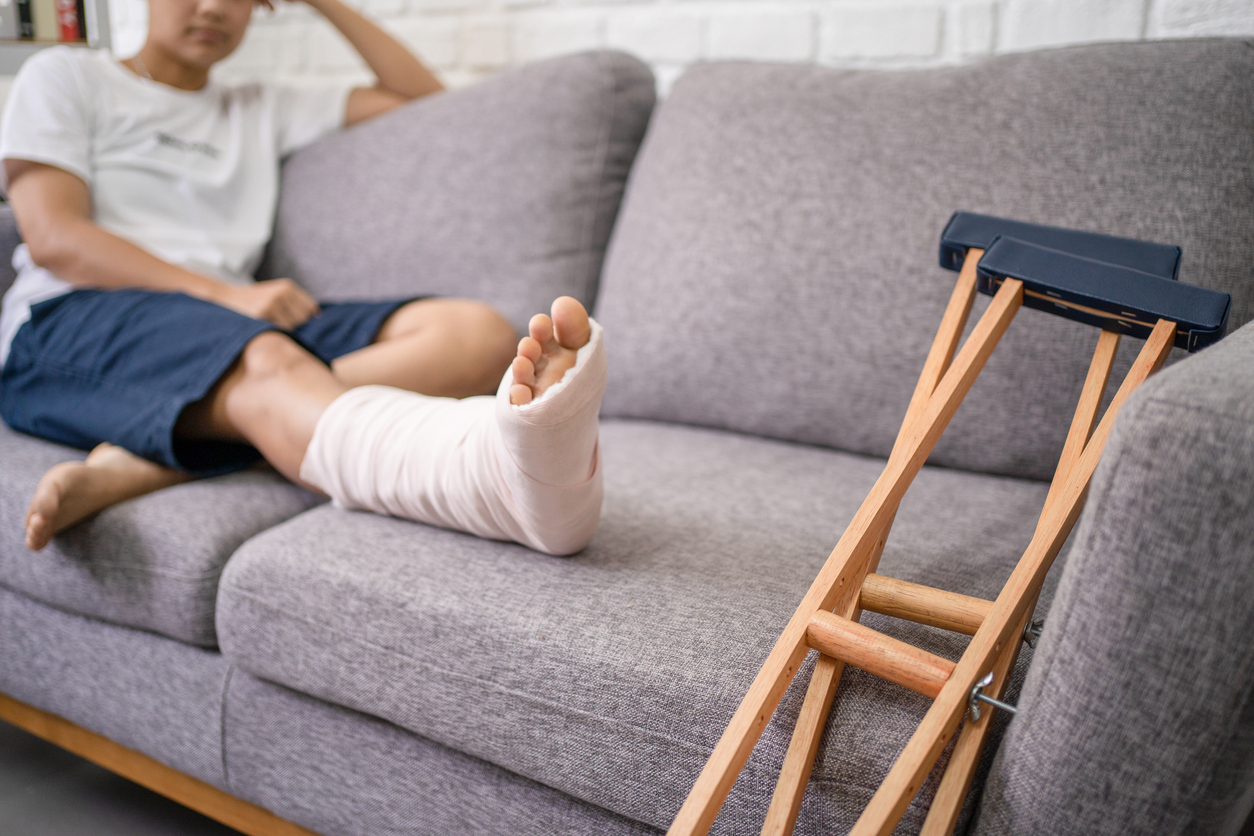Basic Personal Injury Settlement Breakdown: How Much Goes in My Pocket?
Perenich, Caulfield, Avril & Noyes Personal Injury Lawyers | Personal Injury

The amount of personal injury compensation you win in court or at the settlement table is probably not the same as the amount that appears in your bank account. Various deductions apply, depending on the circumstances. Additionally, there are inherent limitations on how much compensation you can receive in the first place.
Damages in a Personal Injury Claim
A personal injury claim can include economic, non-economic, and sometimes punitive damages. Examples of economic damages include your lost wages, medical bills, and other expenses. Non-economic damages include your pain and suffering as well as your emotional distress.
Punitive damages usually aren’t awarded in personal injury cases but are meant to punish the defendant for their behavior. Compensation rules differ for car accident, wrongful death, and workers’ compensation cases. For instance, workers’ comp claims usually can’t include non-economic damages.
Limitations on Personal Injury Claims
No matter how severe your illness or injuries are, certain limitations are likely to apply to the amount of money you can receive.
Insurance Policy Limitations
You could have a billion-dollar claim, but if the insurance company’s policy limits are $10,000 (minimum PIP car accident insurance policies, for example), then $10,0000 is the most you will get from the insurance company. Nevertheless, your lawyer might find other compensation sources, such as a well-insured second defendant.
Comparative Fault
Florida applies a “pure comparative fault” system to most personal injury claims (car accidents are a notable exception). If more than one party was at fault, a court would apportion fault among the parties on a percentage basis (25% your fault, 75% the other party’s fault, for example).
Each party will pay their own damages based on their assigned percentage of fault. In the preceding example, you would be liable for 25% of your own damages while the defendant would be liable for 75% of your damages. You would be liable for 25% of the defendant’s damages if any.
How the Money Is Disbursed
The paying party (typically an insurance company) will send the money to your lawyer’s client escrow account within a few weeks after both parties sign the settlement agreement. Your lawyer will deduct the appropriate amounts and transfer the rest to you.
Deductions From Your Compensation Amount
The following deductions from the gross amount of your settlement are typical.
Legal Fees
Most personal injury lawyers charge on a contingency basis, which is a pre-agreed percentage of whatever amount your lawyer wins for you. The advantages of this system are (i) you pay nothing upfront; and (ii) if you don’t win, you never have to pay. The typical contingency fee is one-third of your compensation, or 40% if the case goes to trial.
Case Expenses
Your lawyer may have paid expenses for items such as:
- Court fees;
- Copying expenses;
- Expert witness fees; and
- Other expenses your case generated that your lawyer paid to third parties.
If you don’t win your case, you probably won’t have to pay any of these fees. Read your fee agreement with your lawyer carefully to make sure. If you win, however, your lawyer will take reimbursement by deducting these amounts from your compensation.
Medical Liens
There is almost always a gap between when your medical bills come due and when your settlement money comes in. Meanwhile, you might find yourself unable to pay your bills. Many healthcare providers will agree to secure payment of your medical bills by placing a lien on your future settlement. This means that your healthcare provider is entitled to that portion of your settlement that represents the medical bills you owe them.
Taxes
Personal injury compensation is almost non-taxable. The only elements of personal injury compensation that the IRS can tax are (i) interest on your compensation, lost wages, and (iii) punitive damages. In practice, the IRS does not tax compensation for lost wages because jury verdicts and settlement agreements do not specify how much compensation applies to lost wages.
The rest of the money belongs to you. Nevertheless, there may be some consequences that affect how you fill out your tax return.
A Personal Injury Lawyer Can Increase Your Compensation
A seasoned personal injury lawyer can multiply your compensation. Hiring an experienced personal injury lawyer, rather than representing yourself, will likely increase the amount of money that goes into your pocket even after you pay your lawyer.
Contact the Pinellas County Personal Injury Law Firm Of Perenich, Caulfield, Avril & Noyes Personal Injury Lawyers for Help
For more information, please contact the Clearwater and St. Petersburg personal injury law firm of Perenich, Caulfield, Avril & Noyes Personal Injury Lawyers at the nearest location to schedule a free consultation today.
We serve in Pinellas County and its surrounding areas:
Perenich, Caulfield, Avril & Noyes Personal Injury Lawyers – Clearwater
1875 N Belcher Rd. STE 201,
Clearwater, FL 33765,
United States
(727) 796-8282
Perenich, Caulfield, Avril & Noyes Personal Injury Lawyers – St. Petersburg
2560 1st Ave S,
St. Petersburg, FL 33712,
United States
(727) 349-1728